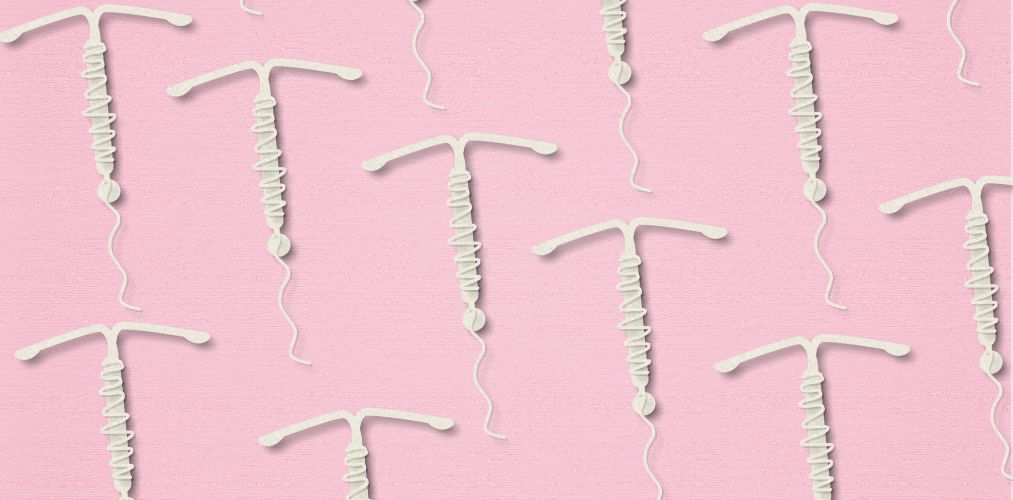Your Guide to IUD Options
If you're exploring long-term birth control options, you’ve probably heard about IUDs. Short for “intrauterine device,” an IUD is a small, T-shaped device that a healthcare provider inserts into your uterus to prevent pregnancy. It’s one of the most effective forms of birth control—over 99% effective—and it can last anywhere from three to ten years depending on the type you choose.
When picking an IUD, you can choose between hormonal and non-hormonal options. Paragard, the only non-hormonal option in the US, is a popular birth control method for women who cannot use hormonal options. It's made of copper which creates a toxic environment for sperm to stop pregnancy from occurring.
Keep reading to learn about all of your IUD options.
Hormonal IUDs
Hormonal IUDs release a small amount of a hormone called levonorgestrel, a form of progestin. This hormone thickens the cervical mucus (making it harder for sperm to reach the egg), thins the uterine lining (which helps prevent implantation) and sometimes stops ovulation altogether.
As of now, there are four hormonal IUDs approved by the FDA in the U.S.:
1. Mirena
- Lasts up to eight years.
- Best for people who want long-term protection and lighter periods.
- It's often prescribed to treat heavy periods.
Mirena is one of the most popular hormonal IUDs. It’s known for significantly reducing period flow and sometimes stopping periods altogether after the first year. It’s a good choice for those who also experience heavy or painful periods.
2. Liletta
- Lasts up to eight years.
- Best for people looking for a lower-cost option.
Liletta works similarly to Mirena but is often more affordable, especially for those without insurance. It’s a great option for people looking for the same benefits—long-term protection and lighter periods—without a high price tag.
Related Search Topics (Ads)
3. Kyleena
- Lasts up to five years.
- Best for people who want a lower dose of hormones.
Kyleena contains a slightly lower hormone dose than Mirena and Liletta. It’s smaller in size, which can make insertion more comfortable, especially for those who haven't had children.
4. Skyla
- Lasts up to three years.
- Best for younger users or those who prefer shorter-term birth control.
Skyla is also small and lower in hormones, making it ideal for those who want to try out an IUD for a shorter period or are new to hormonal birth control.
Copper IUD
5. Paragard
- Lasts up to ten years.
- Best for people who want a hormone-free option
Paragard doesn’t use hormones. Instead, it’s wrapped in a thin layer of copper, which is toxic to sperm. The copper creates an environment where sperm can’t survive, preventing fertilization.
Paragard is a solid choice for people who prefer to avoid hormones altogether. It can also be used as emergency contraception if inserted within five days after unprotected sex.
Some users report heavier periods and more cramping, especially in the first few months after insertion. But for many, this side effect gets better over time.
Who Should Consider an IUD?
IUDs are great for a wide variety of people. Here’s who might benefit most:
- Busy lifestyles. If you don’t want to think about birth control every day or month, an IUD offers "set it and forget it" protection.
- Young adults and teens. Despite a common myth, IUDs are safe for people who haven’t had children.
- Those sensitive to hormones. Paragard is a great option if you’ve had negative reactions to hormonal birth control in the past.
- People with heavy periods. Hormonal IUDs, especially Mirena and Liletta, are often recommended to help manage period symptoms.
That said, not everyone is a perfect fit. If you have certain uterine abnormalities or infections, or if you’re pregnant or have unexplained vaginal bleeding, your doctor may suggest other options.
What to Expect with an IUD
Insertion is a quick procedure, usually done in a doctor’s office. Some people feel cramping during and after insertion, but it typically doesn’t last long. Most people can go about their day shortly after the procedure.
Side effects vary. Hormonal IUDs might cause lighter or irregular periods. Copper IUDs might cause heavier bleeding at first. But overall, most users are highly satisfied and choose to keep their IUD for the full duration.
And remember—while IUDs are excellent at preventing pregnancy, they do not protect against STDs, so using condoms is still a good idea if you're not in a monogamous relationship.
Final Thoughts
Choosing birth control is a personal decision. IUDs offer a long-lasting, low-maintenance and highly effective way to take control of your reproductive health. Whether you want a hormone-free option, lighter periods or simply to stop worrying about daily pills, there are types of IUDs that will fit your lifestyle.
Always talk with your healthcare provider about what’s best for your body and your needs. The right birth control should make your life easier, and with IUDs, that’s exactly what many people experience.

